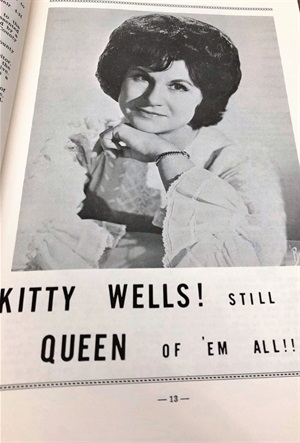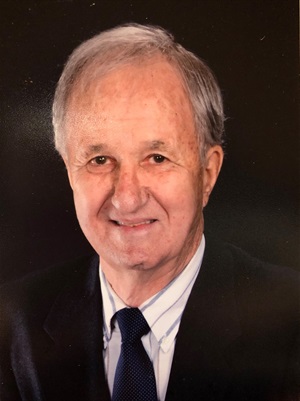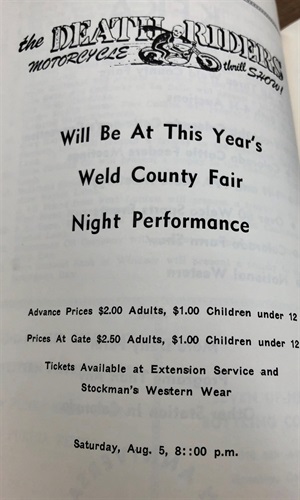Fair Manager Brings New Concepts to Boost Fair Attendance
By Baker Geist, Weld County Communication Specialist, photos from Elmer Rothman and the CSU Extension Office
 On summer nights throughout the ’70s, it was not uncommon to hear the melodies of rising country music stars at Island Grove Regional Park during the Weld County Fair. Musicians like Danny Davis and the Nashville Brass, Frenchie Burke, and Gary Mann all performed in Greeley as they began building their careers. For some, like future Grammy award winners Jody Miller and the “Queen of Country Music” Kitty Wells, the Weld County Fair was just one stop in many during successful careers.
On summer nights throughout the ’70s, it was not uncommon to hear the melodies of rising country music stars at Island Grove Regional Park during the Weld County Fair. Musicians like Danny Davis and the Nashville Brass, Frenchie Burke, and Gary Mann all performed in Greeley as they began building their careers. For some, like future Grammy award winners Jody Miller and the “Queen of Country Music” Kitty Wells, the Weld County Fair was just one stop in many during successful careers.
Elmer Rothman — a CSU extension agent for 33 years — was the Weld County Fair Manager from 1968 until 1980. His efforts to bring musicians to the fair were part of a bigger goal he had during his 12 years leading the event; extend the fair’s popularity throughout Weld County and increase attendance.
“What was happening at the fair was it was mostly 4-H, FFA and families attending,” Rothman said. “The townspeople in Greeley weren’t attending like we thought they should be.”
To find musical talent, Rothman attended showcases in Denver at the National Western Stock Show where musicians would put on small shows lasting about 10 minutes. Rothman then worked with talent agents to bring artists to the Weld County Fair. Musicians were also found from brochures sent in the mail by talent agents throughout the country.
“I had a contact with Hap Peebles and he would send out literature about different people we might be interested in. That’s how we got Kitty Wells,” Rothman said.
Finding the acts was just one part of the equation, having the money to book them and stay within budget was another challenge. To help, Rothman struck up sponsorship deals with Pepsi Cola and McDonalds on west 10th street in Greeley. As sponsors of “Family Night at the Fair” both Pepsi and McDonald’s split the contract price of the artist with Weld County and the CSU Extension Office. McDonald’s even offered discount tickets to customers.
Despite efforts to bring in talented acts, attendance to the shows was stagnant. Going off memory, Rothman said most shows brought in only 1,000 people, not a great number when the original grandstands could hold more than 2,000. The shows may not have increased attendance to the fair, but they gave an idea to the Stampede which helped it grow and flourish.
Rothman explained that after a few years of putting on night shows he was approached by Edgar “Lefty” Bartels — chairman of the rodeo committee working with the Greeley Stampede — who wanted advice on how to bring musicians to its event. Rothman was happy to help and offer advice but said the Stampede was able to produce better shows, making the fair’s ability to attract concertgoers more challenging.
 “Once the rodeo committee got into it and had the good shows four weeks before the fair it made it real difficult for us to have any success,” Rothman said. “They did a really good job at promoting and bringing in valued talent groups but it took away a lot of the opportunities that we had earlier experienced.”
“Once the rodeo committee got into it and had the good shows four weeks before the fair it made it real difficult for us to have any success,” Rothman said. “They did a really good job at promoting and bringing in valued talent groups but it took away a lot of the opportunities that we had earlier experienced.”
Concerts were just one element to broaden the fair’s entertainment value. Some events also improved, thanks in part to residents’ contributions. One of the most significant events to undergo changes was tractor pulling. A sled, created by Kersey resident Fred Croissant, made tractor pulls more competitive. During an event, every five yards men would step on the sled, gradually increasing the weight being pulled. Then, in the mid ’70s, mechanical sleds were introduced allowing for weight to be equally distributed to each tractor, making for better events.
“Participation was a lot bigger than it was originally,” Rothman said. “It got to looking more competitive. It was a fairer competition by having a modified sled with a gear mechanism that would pull weight from the back to the front as it moved down the track.”
There were also many unique events debuted during Rothman’s tenure as fair manager, including many arena events. In 1974, draft horse team pulling was introduced. Like tractor pulling, horses compete to see which one can pull the most weight. As there were few draft horses in Weld County at the time, teams were brought in from mid-western states like Kansas and Missouri. Chariot races were also held and teams were brought in from Steamboat Springs, Colo. and Wyoming to compete.
Some events created were less conventional. “Pig in a Jeep” races were held one year. In this race, three participants were required to first catch a small pig in a temporary pig pen set up by the track, then race with it sitting on their lap.
There was also ostrich racing. Yes, ostrich racing.
“We had a group from Kansas that had wild animals and they brought ostriches in and put those on the front of a lightweight chariot so there wouldn’t be a lot of resistance for the birds,” Rothman said. “We put one man in the chariot and he’d use a broom to guide them.” Rothman explained that the bird controlled the chariot depending on which direction it looked, so using a broom to block its vision kept the bird on track and heading in the correct direction.
 Despite efforts to create unique events and extend the fair’s popularity, Rothman said attendance never really grew much during his tenure as fair manager. Still, he said he enjoyed working with the fair and is proud of the efforts he and his fellow extension agents gave in organizing it every year.
Despite efforts to create unique events and extend the fair’s popularity, Rothman said attendance never really grew much during his tenure as fair manager. Still, he said he enjoyed working with the fair and is proud of the efforts he and his fellow extension agents gave in organizing it every year.
Like all who’ve led the fair through 100 years, the role Rothman played was not only unique but an important piece in Weld County Fair history.
SOME OF THE MUSIC ACTS WHO PLAYED AT THE WELD COUNTY FAIR THROUGH THE YEARS
1970 – Hank Thompson
1971 – Danny Davis and the Nashville Brass
1972 – Kitty Wells featuring Johnny Wright, Bill Phillips, Bobby Wright and Wayne Manning
1973 – Jody Miller
1975 – The Tonyan Family
1976 – River Rock and the Plainsmen
1977 – Frenchie Burke and Gary Mann
1978 – R.W. Blackwood and the Blackwood Singers
1979 – The LeGarde Twins
1980 – Banjo Bills and the American Singers Chorale
1989 – The Shoppe
Source: Weld County Fair books, Greeley Tribune and Windsor Beacon articles